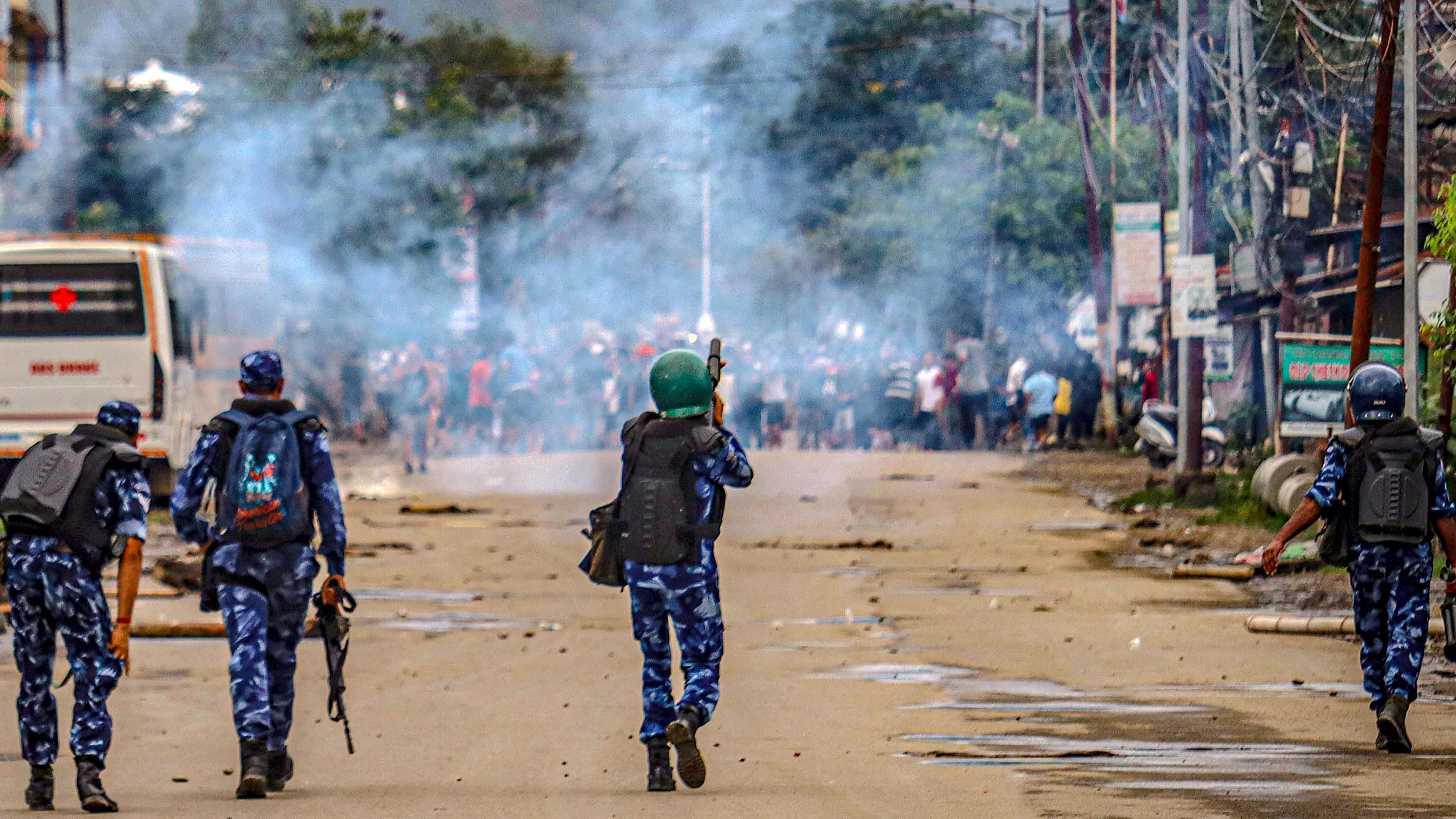
Imphal: Security personnel fire tear gas shells as students protest against the "killing" of two missing students
Credit: PTI Photo
Through the nine months of ethnic violence and social and political polarisation, Manipur has been sliding into anarchy and a situation where a return to normalcy seems to be difficult in the near future.
The social division between the Meitei in the plains and the Kuki in the hills has turned into a hostile relationship and the militant and extremist elements and organisations on both sides are setting the agenda.
The plains and the hills have become exclusive domains of the respective communities, and neither the Meitei nor the Kuki can think of visiting the other side. The writ of the state government of Chief Minister Biren Singh does not run in the Kuki areas.
The government is seen as the government of the Meitei. The media has also divided itself on ethnic and communal lines. Every institution of democracy is either ineffective or lacking in credibility. At least 208 people have been killed and over 50,000 people have been displaced since May last year. Most schools are not working and life is not normal in most areas.
The attendance at a meeting called by a Meitei extremist organisation, Arambai Tenggol, in Imphal last week is an indication of the extent of loss of control of the government over the situation. At least 36 legislators from the Meitei community belonging to all parties attended the meeting, many on their own and some under threat, at the Kangla Fort, which is seen as the traditional seat of Meitei power.
They signed a pledge supporting the Arambai’s main demands, including the abrogation of the Suspension of Operations (SoO) agreement with Kuki militants, deportation of refugees from Myanmar to neighbouring Mizoram, implementation of a National Register of Citizens with 1951 as the base year, erecting a fence along the Myanmar border, and removal of Kuki immigrants from the Scheduled Tribe list.
This will make a reconciliation with the Kuki community impossible. It has, in effect, declared Manipur as a Meitei state. The Meitei conduct and attitudes are reciprocated in the Kuki areas, and it is difficult to see how the twain can meet.
Killings continue, and there are frequent outbreaks of violence. The state government, which virtually identifies itself with the Meitei, is part of the problem.
The Centre has adopted a hands-off policy, though it has taken over the law and order situation. The divisions in society have affected perceptions about the security forces also, with the central forces, including the Army, and the state police seen to be representing opposite interests.
The arms looted from the state armouries are still in circulation. A part of the country is imploding and there is no effort to salvage it.